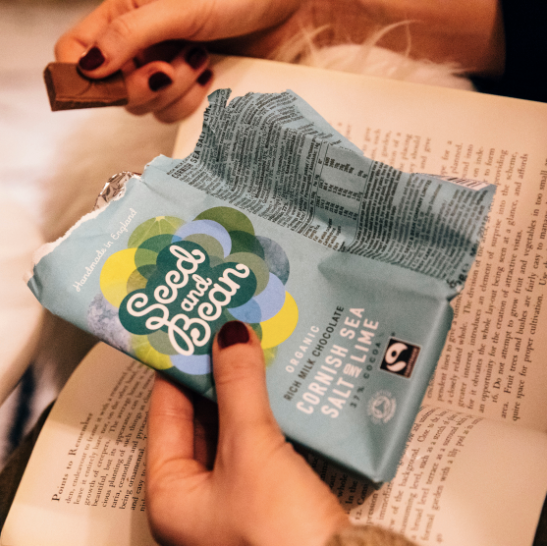Seed & Bean’s founding chocolatier has over two decades of experience producing chocolate, as well as having worked in the organic industry for over 15 years with organic chocolate and wholefoods.
With this in mind, we have been able to create the most delicious, ethical and sustainable British chocolate. Working with a small team, and making everything handmade in our factory in England, we have created our take on classic chocolate flavours, as well as being a little daring with some of our more unique and adventurous flavour combinations!
We are proud to work with The Soil Association, which has the some of the highest organic standards in the world.
What is organic?
The practice of organic farmers are all based on a set of internationally recognised principles. These principles are the roots from which organic agriculture grows and develops. They express the contribution that organic agriculture can make to the world, and a vision to improve all agriculture in a global context.
Organic food
Our definition of organic food is food which is produced using environmentally and animal friendly farming methods on organic farms. These methods are legally defined and any food sold as 'organic' must be strictly regulated.
Organic farming
Organic farming recognises the direct connection between our health and how the food we eat is produced. Artificial fertilisers are banned and farmers develop fertile soil by rotating crops and using compost, manure and clover.
Organic animals
Organic animals enjoy the very highest welfare standards – they are truly free range and have plenty of space and access to fields.
Organic standards
Organic standards are the rules and regulations that define how an organic product is made. This is laid down in European Union (EU) law.
5 Reasons to choose organic
Nutrition
New research shows significant differences in anti-oxidant levels between organic and non-organic crops. Additionally, GM (genetically modified) crops and ingredients are banned under organic standards. Choosing organic is an effective way to avoid GM in your diet.
Food you can trust
You can be safe in the knowledge that hydrogenated fats and controversial additives like aspartame, tartrazine and MSG are banned under organic standards.
Better for the environment
Organic farming reduces pollution and greenhouse gases released from food production by restricting the use of artificial chemical fertilisers and pesticides.
Wildlife protection
Organic farms are havens for wildlife and provide homes for bees, birds and butterflies. In fact, plant, insect and bird life is up to 50% greater on organic farms.
Higher animal welfare
Organic standards insist that animals are given plenty of space and fresh air to thrive and grow - guaranteeing a truly free-range life.











